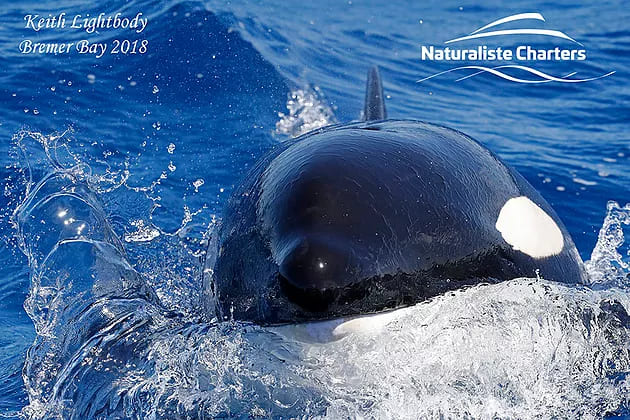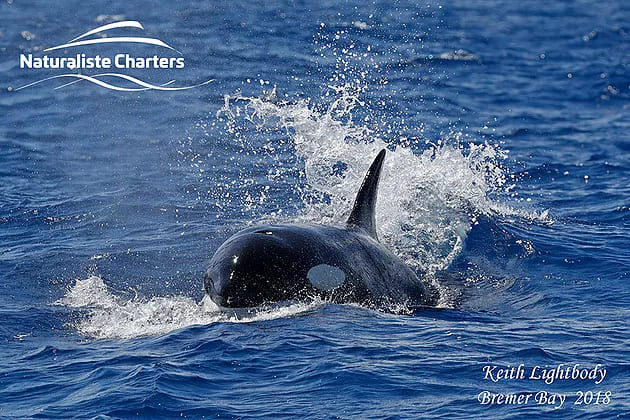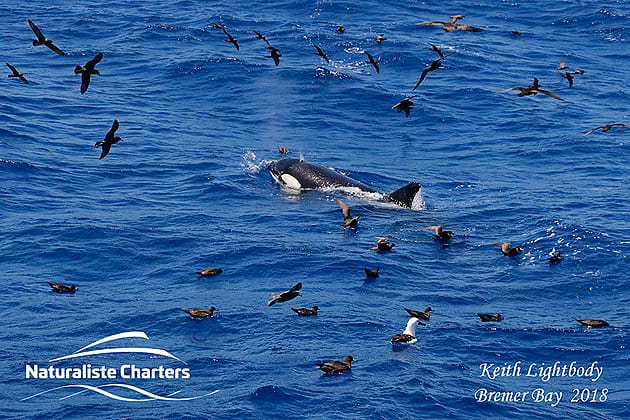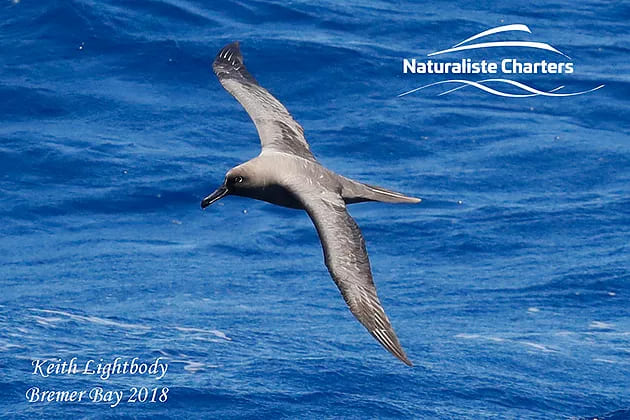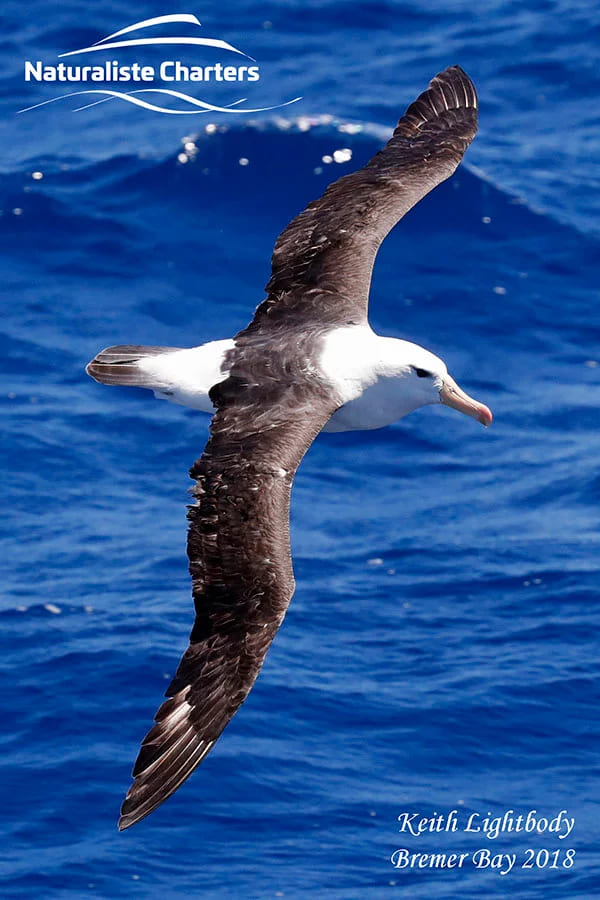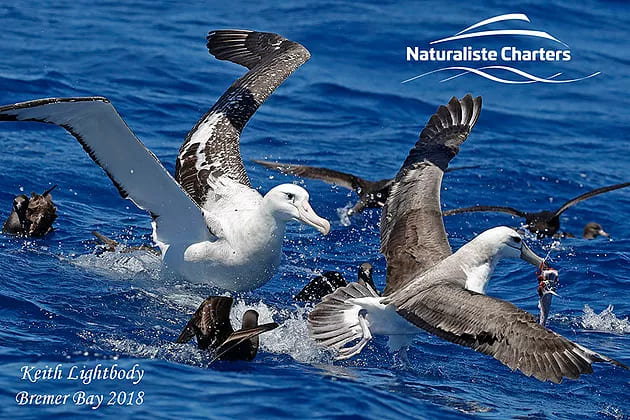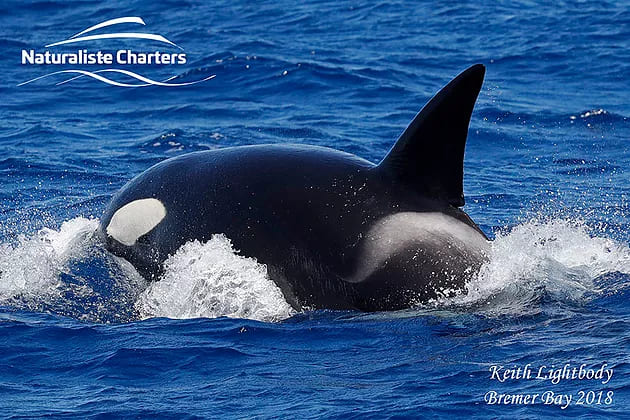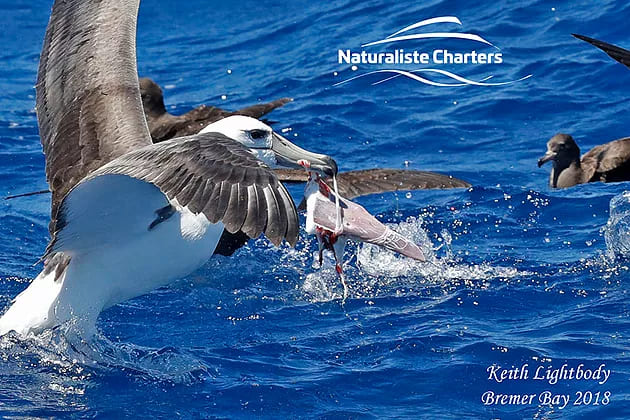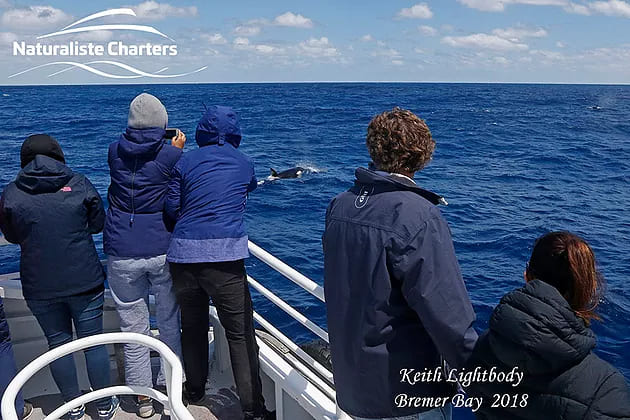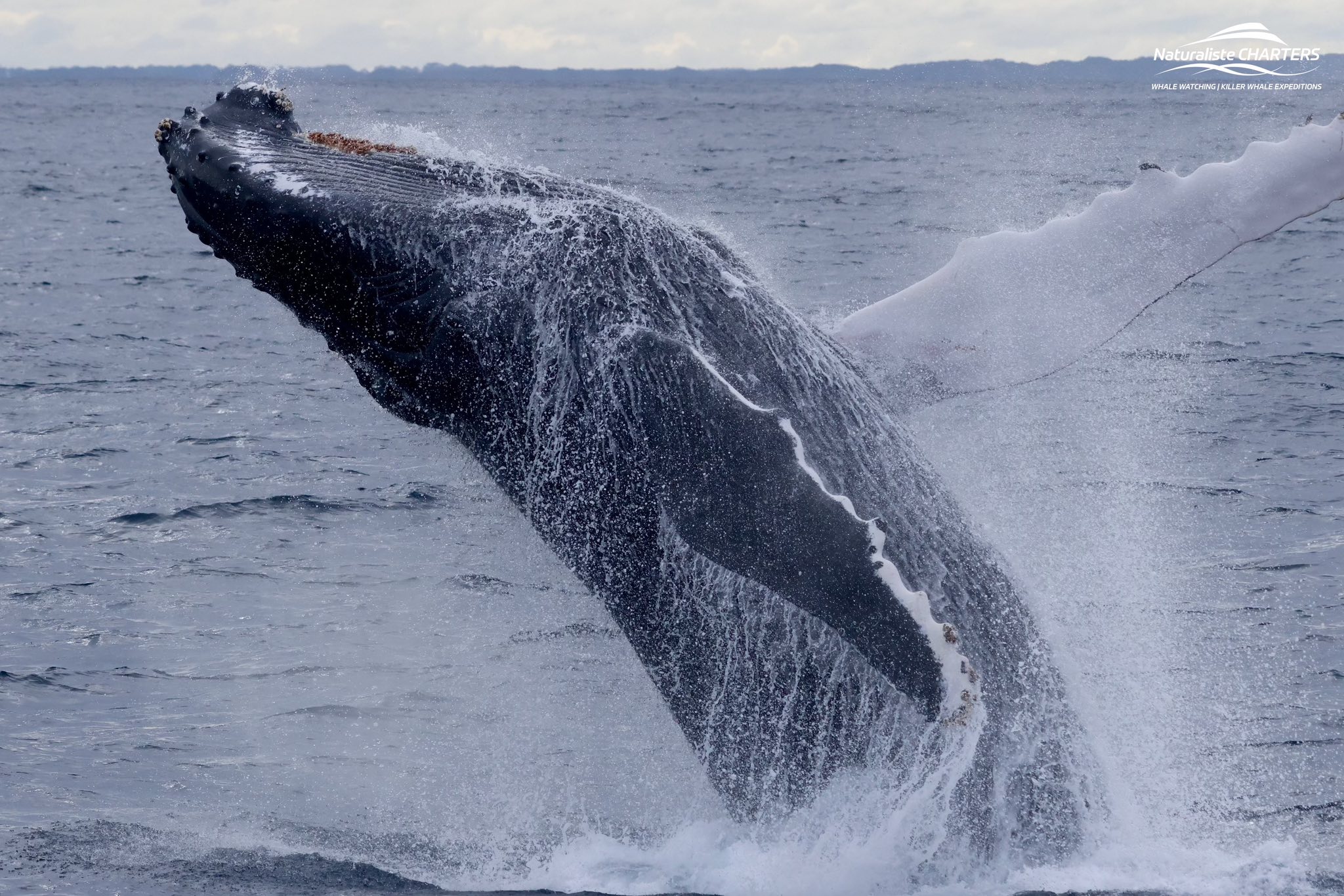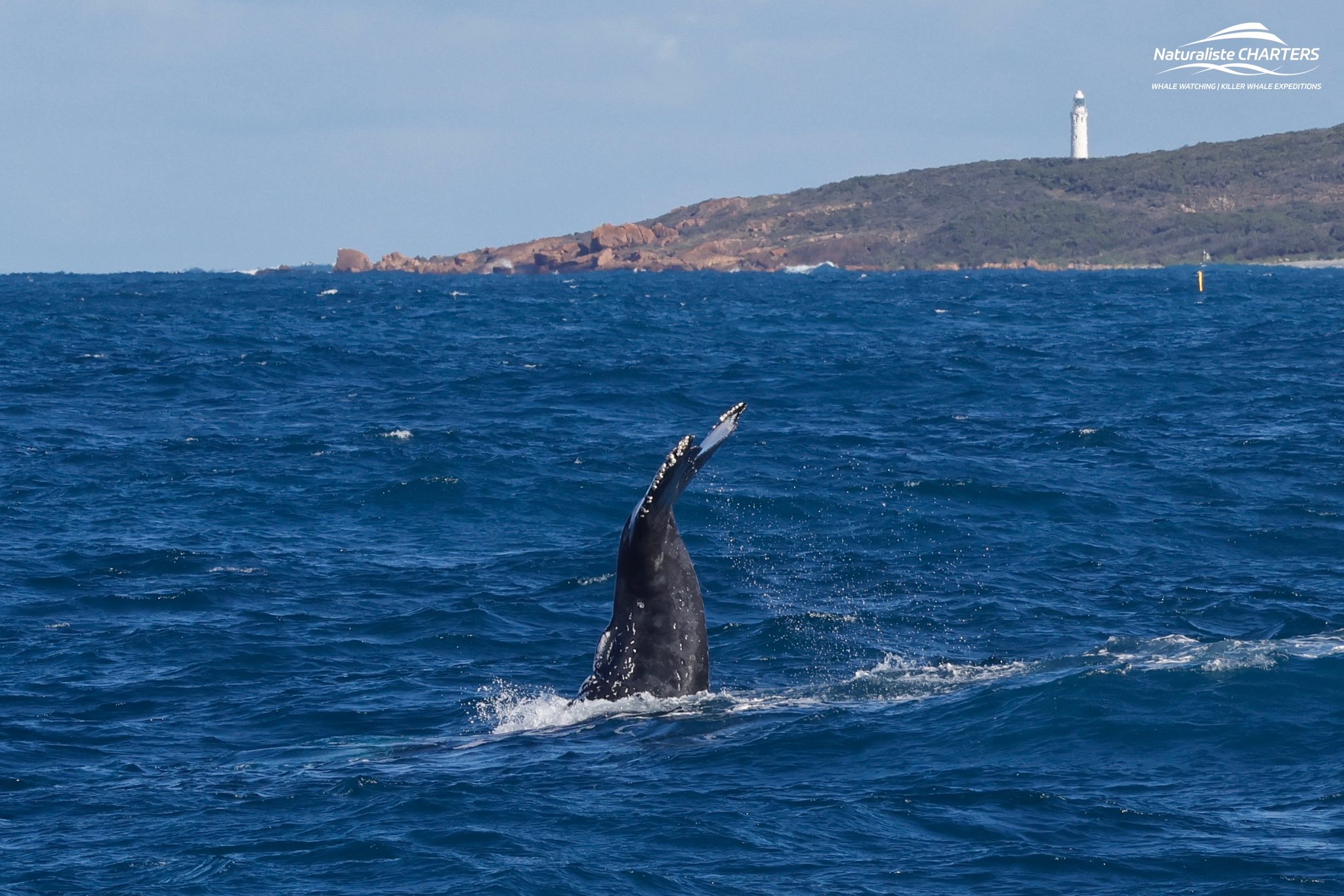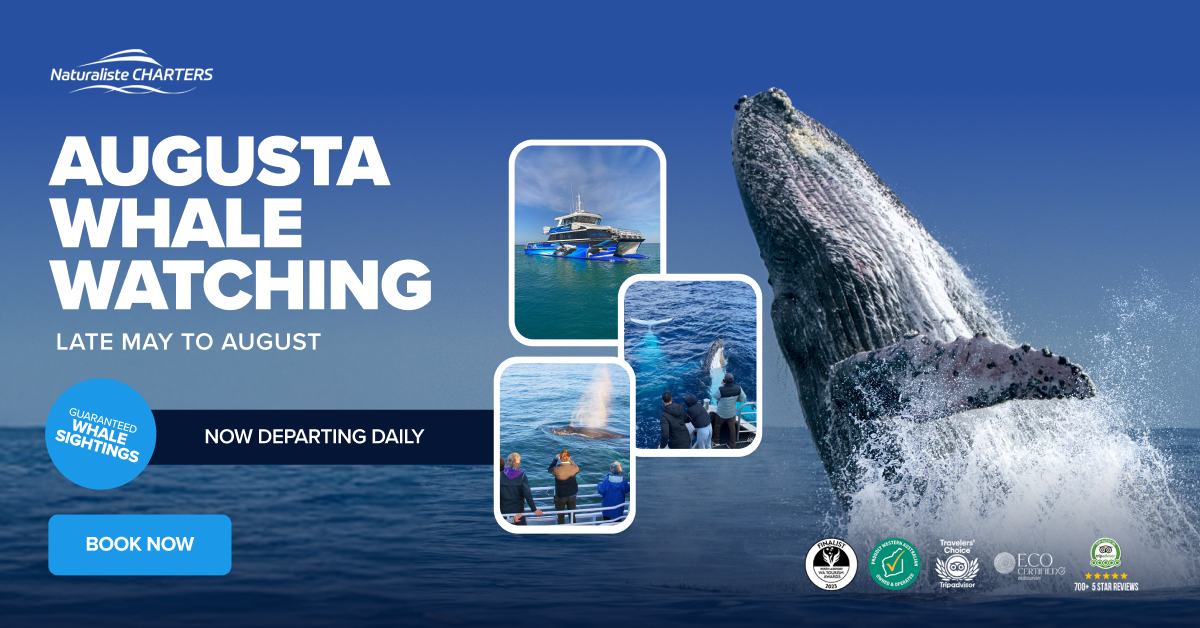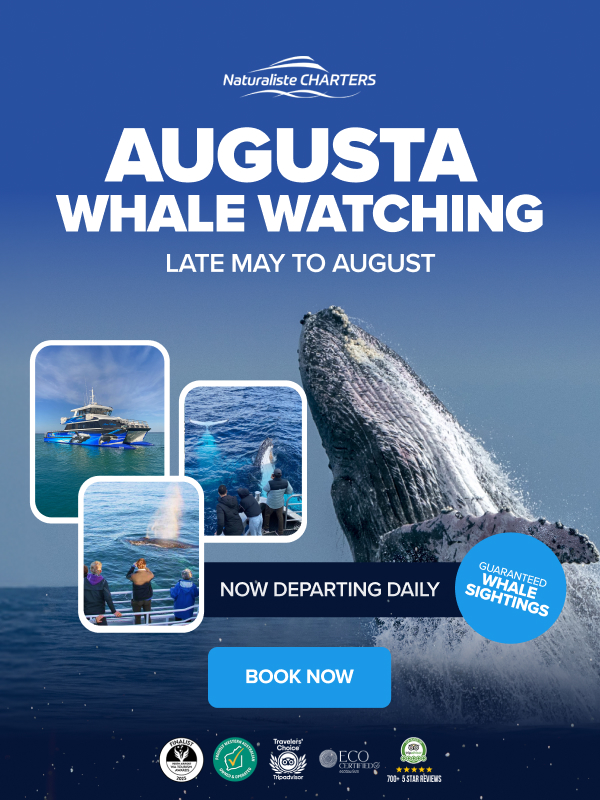We sighted the blows of killer whales almost immediately as we arrived at the offshore office today. The three pods we had sight of remained at a distance from the vessel, and were very active, moving fast. Two individuals remained away from the activity, and moved at a more sedate pace. As we edged closer, we identified B-slice and a male that does not have a nickname, seen several times this year and once 2017. We enjoyed watching both individuals make close passes of our vessel while we kept an eye on the more distant orca activity.
It wasn’t long before one of our expeditioners pointed out a very unusual fin weaving a slow track through the sea. It belonged to the equally unusual looking sunfish. This individual was a juvenile by sunfish standards, at around 1.5 m between fin tips. Sunfish can reach over 3 m in length and over 2,000kg. Oceanic Sunfish are the largest bony fish in the sea, closely related to leather jackets, and box fish. The blue depths of the Bremer Canyon are home to both the Oceanic Sunfish and the Southern Sunfish. They are the ultimate sunbathers, spending a lot of time on their sides on the surface, soaking up the sun’s rays. They do this to regulate their body temperature. After a deep dive to the cold depths of the canyon, they spend time on the surface to warm up. By using the sun and warm surface waters to regulate and raise their body temperature, sunfish are able to spend more time foraging in the cold depths. This dependence on the sun for thermoregulation means that sunfish are only able to hunt in deep waters during the day, where they may reach depths of 400-600 m. At night they simply rest and scavenge in warmer surface waters. Although some of our expeditioners were hoping to see this one become a killer whale snack, it swam into the distance in its unusual way unscathed.
Meanwhile, the activity of the more distant killer whales had intensified. It was time to take a closer look. And fast. We hung on and squinted through the spray that filled the air as we carefully picked up our speed, breath held as we watched the killer whales rocket ahead of us. We closed the gap and then slid to a quiet standstill. The air was filled with a clean fishy smell, the scent of a success for this killer whale pod, confirmed by the red-brown stain of blood that spread on the surface, and the sheen of oil that coated the swells.
Thanks to their keen sight and sense of smell, the scene had already become a busy avian buffet. We were fortunate to have our bird experts on board conducting surveys today, so can add some numbers and detail to the swirl that filled the sky and squabbled over scraps on the surface, many with heads below the surface keep an eye on the feeding orca. The seabird contingent included 800 Flesh-footed Shearwaters and 150 White-faced Storm-petrels; these are both local breeders from islands along the WA south coast. Albatross including Shy Albatross, Black-browed Albatross, Indian Yellow-nosed Albatross, Wandering Albatross and six Sooty Albatross, rare for this area, joined in the fray. Many of the birds carried substantial scraps, photos of which have been passed on to prey experts for examination.
Killer whales also surfaced with chunks of meat, birds in hot persuit as they tracked the most likely source of the next morsel. Those on deck also tried to track the surfacing killer whales, which was a bit more difficult that usual today, as they surfaced infrequently over a wide area. Had they taken a large prey item down deep and dismembered it quickly? Or had they attacked several smaller prey? As is often the case, we returned home wondering. There is so much still to learn about this incredible deepwater ecosystem. Perhaps tomorrow will be a day when more questions are raised, or perhaps it will be one where a question is answered. We won’t know until we go, thats the exciting thing..
Until then,
The Bremer Canyon Crew

